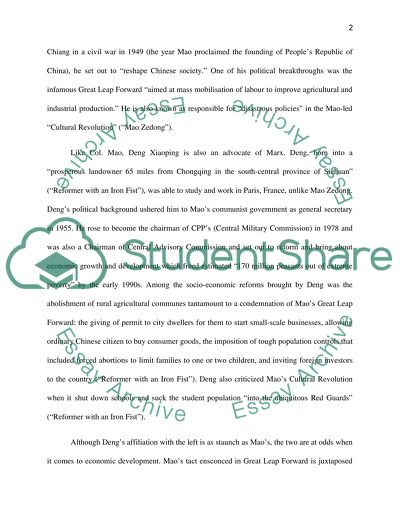Zedong and Xiaoping Different Ideology and One Same Goal Essay. Retrieved from https://studentshare.org/history/1449549-china-historycampare-and-contrast-social-relations
Zedong and Xiaoping Different Ideology and One Same Goal Essay. https://studentshare.org/history/1449549-china-historycampare-and-contrast-social-relations.


